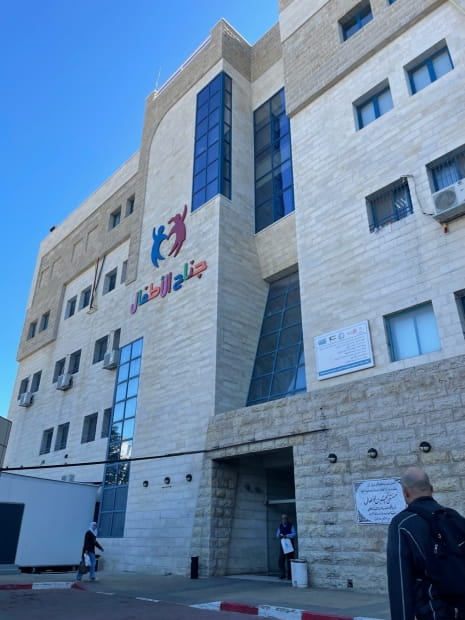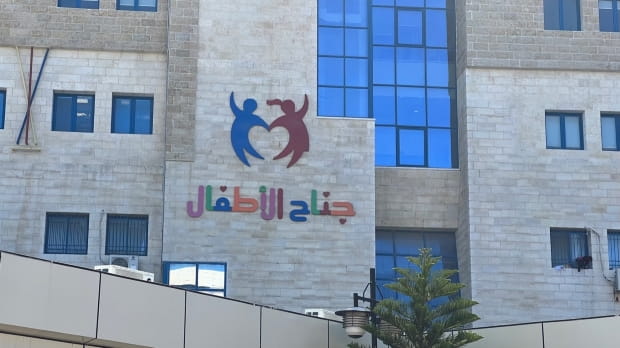Palestinian children get help from Randall Children’s Hospital team
September 28, 2023
Home > About > News & Media > Story Center

Dr. James Kyser gave little thought to medical mission trips until he and his team traveled more than 6,000 miles to Ramallah, Palestine, to help train local healthcare providers how to perform cardiac catheter procedures.
One of the seven patients they treated in the new pediatric wing of the city’s hospital was an 18-month-old girl. The girl’s father is a local priest, making the family ineligible to travel the 90 minutes to Tel Aviv, Israel, for the procedure. Kyser’s team successfully closed a hole in the girl’s heart.
“The father and mother were in tears,” said Kyser, who practices out of Randall Children’s Hospital at Legacy Emanuel. “The parents told us this was their daughter’s only chance for much needed care. Every patient had a similar story.”
The mission trip, which was organized and supported by the local chapter of the Palestine Children’s Relief Fund, serves a two-fold purpose. The first, and most immediate, is to provide specialized cardiovascular medical care that residents can’t receive elsewhere. The second, and more lasting, is to train the staff at the Ramallah hospital on new procedures and equipment.
Asma Taha, DNP, assistant professor at the OHSU School of Nursing, and president of the local relief fund chapter, persuaded Kyser to take his first medical mission trip.
Kyser said what little he knew about the political tension between Palestine and Israel came from snippets of the U.S. version of the news. The abstract of those politics became real when Kyser passed through security checkpoints on the drive from Tel Aviv to Ramallah. The volatile political landscape, however, wasn’t what Kyser spent his time talking about.
“Nobody cared about politics except when it limited their access to medical care,” Kyser said. “The Palestinian people are just trying to live their lives like anyone else.”
The trip was about a 20-year-old man who was the first in Palestine to receive a Melody valve and the first to spend a night in the hospital’s new Pediatric Intensive Care Unit. Or the 4-year-old girl with Down syndrome who stole the team’s heart with her bubbly personality.
Kyser hand-picked his team of one nurse, two x-ray technicians, and an anesthesiologist because he knew how well they perform in the cath lab. He said one of the more interesting interactions was the conversion he overheard between the team members from Portland and a local nurse.
The team of women would suggest setting up the cath lab a certain way and the male nurse from Ramallah would dismiss their suggestions. The women would then tell him, “Well Dr. Kyser likes it like this because” and then explain why, providing a major component of education.
“I was touched by how effective they were in teaching and how sensitive they were to the local culture,” Kyser said. “Before you knew it they were all friends, joking, and taking group selfies.”
Kyser’s team found the experience so rewarding that they are already making plans to return in October.
“We’re already making plans for more patients and more complex cases,” he said.


